A friendly demeanor, an authoritative presence: Dr. Arno Antlitz is responsible for finance at one of the world’s largest corporations, Volkswagen AG. In an exclusive interview with Porsche Consulting Magazine, Antlitz talks about financial sustainability, the huge transformation processes taking place in the automotive world, and dealing with risks. He sees new opportunities in the region, but new competitors for the Group as well—and also gives us a look into the contents of his wallet. At present, his chief concern is how to target and fill the most attractive profit pools in the ongoing transformation of the Group.
Dr. Antlitz, let’s start with a personal question: how much cash do you have in your pocket right now?
Actually, I’ve switched to paying with my phone whenever possible. I’m increasingly short on cash (laughs). Parking meters can sometimes be a problem. Fortunately, cashless payment options are becoming more common. That’s the way of the future, I think.
And what would your answer be as CFO of Germany’s largest corporation?
Well, net liquidity is a good performance indicator in the automotive industry. And it’s hovering around 40 billion euros. That’s very good news for Volkswagen—for all the employees and also for us as board members. Solid finances like that give us the backing we need to master the transformation going on in our industry right now.
But money keeps losing value. People are really concerned about inflation. Does a company like Volkswagen feel its effects too?
Of course we’re affected by inflation. We see it especially on the markets for raw materials and energy, and are trying to compensate as much as possible. We’ve always worked on our costs, and will keep doing so. That’s also our responsibility—not least of all to our customers. After all, our high-volume brands stand for mobility that’s not only attractive but also affordable. I myself, however, am largely optimistic that inflation will settle down toward the end of the year. By “settle down” I don’t mean go back to zero. Inflation of around 2 or 3 percent would be a reasonable corridor for 2024.
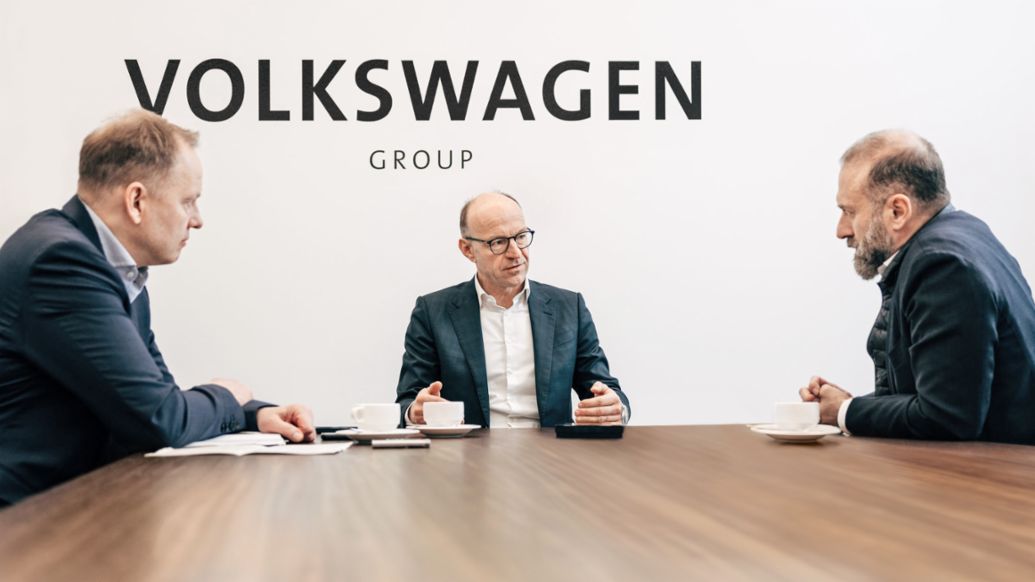
You’ve just mentioned the transformation in the automotive industry, which Volkswagen is also going through. Are the associated investments and write-offs of a magnitude that might make a finance head nervous?
I feel the opposite of nervous. It’s incredibly motivating to steer the financial side of a large corporation like Volkswagen on the road to electric mobility and digitalization. We’re one of the biggest companies in the world. Our commitment to carbon-free mobility therefore means we have a lot of influence. We’re playing a major role in decarbonizing the entire industry and helping to make sure that life on our planet remains worth living.
But the challenges are enormous …
We have a lot of exciting brands—Volkswagen, Audi, and Porsche, but also Škoda and Cupra—and in addition, we’re setting up trans-brand platforms for software and batteries as well as for mobility in general. Taken together, we can cover an extraordinary range of market segments while also generating scale effects. Then there are the advantages we just mentioned of high net liquidity levels and a solid bottom line. On top of that, we have excellent teams. When I consider these factors, I don’t see a need for us to be nervous. On the contrary. We can tackle this transformation with confidence, and initiate changes from a position of strength. We have the chance to be one of the most successful companies on the market.
“Transform and perform” is a great way of describing the challenge. Despite the limited resources you’re calling on the company not only to transform but also to increase its efficiency and make its supply chains more resilient. How much internal resistance do you have to overcome?
That’s a good summary, thank you. And precisely that is the main job of a CFO. At the end of the day we have to be sure we can pay for the transformation on the strength of our own operations. The short-term issue is cash flow. That means managing profit margins, costs, revenues, and productivity. Porsche Consulting is also very strong in this area. You’re helping us here, along with a lot of other clients around the world.
And how do you know you’re putting enough into long-term investments?
From now to 2030 we’ll be moving from a world with just one profit pool, namely combustion drive systems, to a world with three different profit pools. We’ll still have combustion engines, but electric mobility will become increasingly important as well. And then there will also be software-based services. Different approaches will be needed to manage these three profit pools. To keep combustion-driven cars competitive in a market whose volume is essentially being cut in half, we’ll have to increase model efficiency. So here we’ll be focusing on productivity and cost management, because the scale effects are disappearing. And the issue for electric vehicles is how to successfully ramp them up in a market that continues to show high levels of growth.
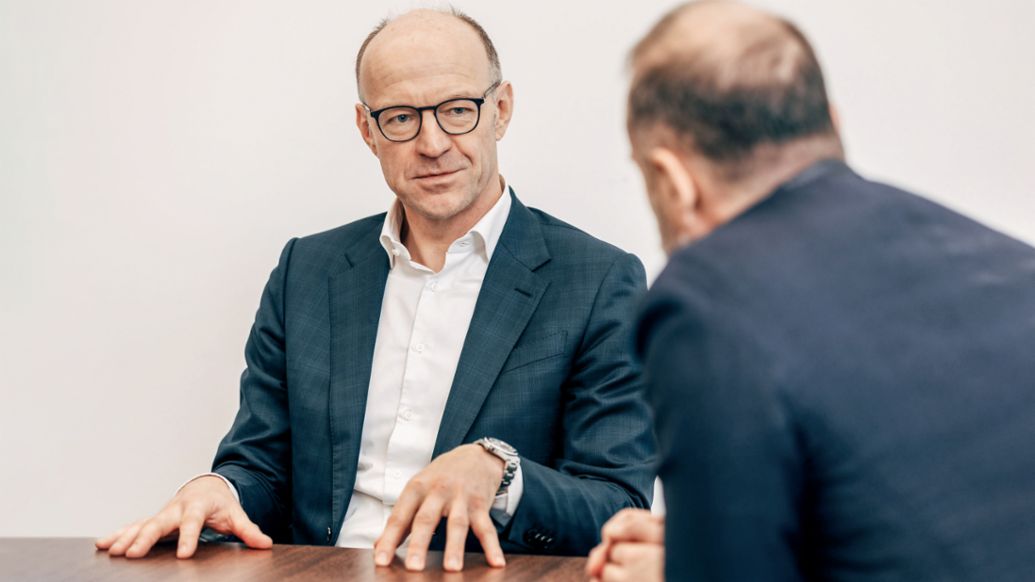
“Ramp up electric vehicles”—that sounds almost relaxed. But all kinds of crazy factors are in play. The raw materials market is in a frenzy right now as demand escalates and prices double or triple—how can you keep that under control?
When it comes to the future costs of raw materials, there are two levers. One is to safeguard, or hedge. There are some materials you can hedge, like nickel, and we’ve done that very successfully. The bigger lever, however, is to enter raw material supply chains ourselves, which means keeping a stronger hold on value creation. Last year we launched PowerCo, for example. It’s a start-up, albeit a large one, that will handle our worldwide battery activities. One of its tasks is to build cell factories. What’s every bit if not more important, however, is to secure the raw materials for these batteries. We’ve started a joint venture with Umicore, a materials technology corporation based in Belgium, to produce cathode materials for our European battery plants. And we’ve signed a memorandum of understanding with the Canadian government with the aim of strengthening raw material supply chains in the North American region. There’ll be more such activities in the future.
How important is it to meet the criteria for environmental, social, and corporate governance—in other words, ESG?
It would be hard to overstate the importance of ESG and that’s a key part of our strategy. As the board member in charge of finances, I’m especially interested in having good ratings. We’ll have to refinance ourselves annually to the tune of tens of billions of euros over the medium term—which makes a good ESG rating all the more important.
Does a corporation like VW have to get more deeply involved in raw material chains these days? After all, it didn’t use to have holdings in steel works or aluminum mills.
We’re still not interested in steel works holdings. Investment in stronger vertical integration, like the battery sector, should always be done on a very, very selective basis. You can only spend each euro once. At the end of the day, we have to make sure that Volkswagen has solid and robust finances at any given point in time. That is a prerequisite for making this transformation work.
In short, a company like Volkswagen should never stand on shaky ground?
Absolutely! Strong finances are paramount. Also and especially in a transformation.
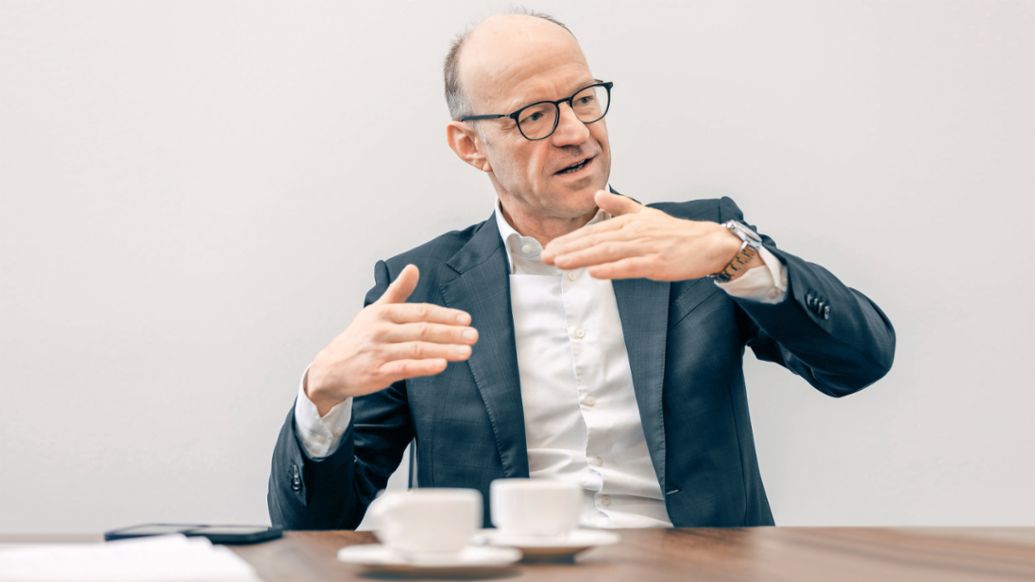
The combustion engine business is on its way out. Will you be having to write off whole factories?
We’re using strong revenues from the combustion sector to pay for ramping up our activities in the electric sector. That’s the opposite of writing things off. Our strategy is to convert our factories one at a time. We’re not going to build new plants for electric vehicles in Europe—instead, we’ll be transforming the ones we already have.
Stellantis, the parent company of FIAT, is banking on factories that work for multiple brands. Is that a feasible approach for Volkswagen too?
We hold a very important asset for the transformation. And that is the MQB, the modular transverse matrix for combustion vehicles. When the MQB was launched in 2012, it was criticized because of the very high investment costs. But the golden age of the MQB is yet to come. Why is that? Because all the investments have been made and the MQB combustion platform is absolutely competitive in its product substance. We’ll equip it with better software and use it for another generation of cars—when combustion drivelines are being phased out. At lower costs, of course, and with sufficient flexibility to bring reduced volumes of combustion vehicles together on a trans-brand basis at MQB plants.
So you’re reaping the natural dividends from previous investments in the MQB platform?
Not just dividends but real money. The MQB also gives us a crucial cost advantage for the phase we’re in now. The same is true for electric cars, for instance at Zwickau, where we’re consolidating different vehicle projects at a single plant. It’s very important to note that this doesn’t mean the cars will become more similar for our customers. On the contrary! We’re using the funds thereby freed up to define our brands even more sharply. If you compare a Škoda Enyaq, a VW ID.4, and an Audi Q4 e‑tron, you’ll see that those are very different cars.
What does resilience mean for Volkswagen?
Resilience is a key concept in today’s world. I’ll start with operational resilience. For years now, we’ve been optimizing the performance of our supply chains. With single sourcing and just-in-time methods, we’ve designed our supply structures for the greatest possible efficiency. However, we’ve entered a period of increasing uncertainty, which means we have to focus much more on resilience. That in turn means higher costs. But we can compensate for the costs with better planning certainty and greater flexibility. Resilience also means making yourself less dependent on requisite sales volumes or in other words, lowering your break-even point.
Does that mean cutting back on globalization?
We have to make sure we’re aware of the consequences. Globalization, which means spreading labor throughout the world, has led to enormous increases in prosperity. If the world now pulls back and makes many different and smaller investments instead of fewer larger ones—or in other words, if it loses its scale effects—then production will become more expensive and customers will have to pay more. The gains in prosperity we’ve seen in the past will ultimately no longer be possible. The primary goal for us as a global company, therefore, has to be promoting an open and globally networked world. But at the same time, we can’t be naïve and we need to prepare for new risks.
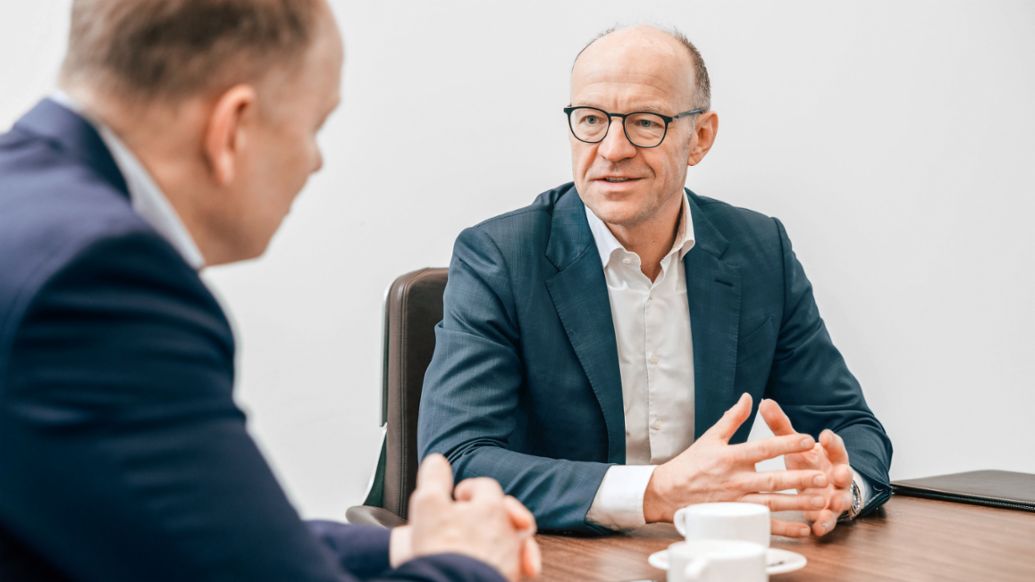
And how do you do that?
That brings me to the second type of resilience, namely strategic resilience, which is also important. We, the Volkswagen corporation, are very strong in Europe and China and we want that to continue. But we have considerable room for growth in the USA. In a world where geopolitical framework conditions are becoming ever more challenging and regulatory landscapes ever more complex, we especially need to strengthen our third pillar in the United States. Maybe not only there. We’re also looking at India, in order to establish a much more robust position in that new world. In my view, India has tremendous growth opportunities. In order to be truly resilient, we have to take an even more global approach.
We haven’t talked about software. Does Volkswagen really have to develop it itself?
Keeping the software in our own hands is crucial if we want to keep determining how cars will function and to stay out in front in terms of data. But that doesn’t mean we can’t work with other companies. I’m talking very specifically about setting up our automotive software subsidiary CARIAD and its software platform. We’re evaluating our strategy here right now. It’s clear that we have to develop and own most of the software ourselves. But that doesn’t stop us from working with partners. The goal is to offer our customers the best possible overall packages for reasonable prices at the earliest points in time. That’s why we’re also counting ever more on the expertise of our partners.
What are the benefits?
Essentially, it’s a matter of the profit pools from driverless vehicles—from mobility as a service and from software-based services. They’re still in their early stages, but we’re expecting the revenues to start flowing from small yet significant flagship projects in 2025, and then for profitable services to emerge and grow rapidly as of 2030—with high sales in both the shipping and passenger sectors. But customers, too, will enjoy new opportunities. For example, I love skiing. Imagine a world in which you can get into your car Friday evening and wake up the next morning at a ski resort after a good night’s sleep. I personally would be an extremely strong potential customer for this type of service (laughs).
So you’re not abandoning the field to Amazon, Google, Apple and the like?
We want to develop the software ourselves. But with intelligent partnering strategies.
What are the biggest unknowns in your calculations right now?
That’s surely the question of how the economy will develop. We’re in an industry that’s currently strongly impacted by supply shortages. Neither we nor other manufacturers can make and sell as many cars as our customers would like. We cannot rule out the possibility of a slowdown in the economy and a weakening of demand. We’re preparing for this accordingly. At the same time, we’re expecting the worldwide supply of semiconductors to improve in 2023. That means a combination of reduced demand and improved supply. We shouldn’t then fall back into the old pattern of offering discounts. We have to maintain discipline in our pricing.
Will competition get tougher because other major carmakers take a different strategy and say they won’t invest in software themselves but rather draw on the services of Google or Apple in order to make their finances more flexible?
That’s possible, but the reflex shouldn’t be to hold back on future investments just because that’s what competitors are doing. There have always been phases when the focus was on costs, and then phases that emphasize the overarching strategy and growth. Right now both are important. That’s a real challenge for a company. You can always pursue a single goal well, but it’s harder when you have more than one. That, however, is exactly what happens in a transformation.
I’m picturing the legendary rally driver Walter Röhrl—hurtling over rough ground at maximum speed with one foot on the gas and the other on the brake.
Our aim is to save money on the one hand, and to spend or invest it on the other. The companies that are best able to pursue these goals simultaneously will emerge from the transformation in the best shape.
Applying brakes to the front axle and power to the rear—while taking curves smoothly?
I’ll have to think about whether that works (laughs).
Walter Röhrl is more of an expert here than we are. But it’s true we’re in an unusual time …
… an unusual time also because different parts of the company are affected in different ways. Some need to become leaner, or downsize considerably, whereas others have to grow. That can generate tensions within the company, which have to be managed with the help of communications, training, and transformative programs.
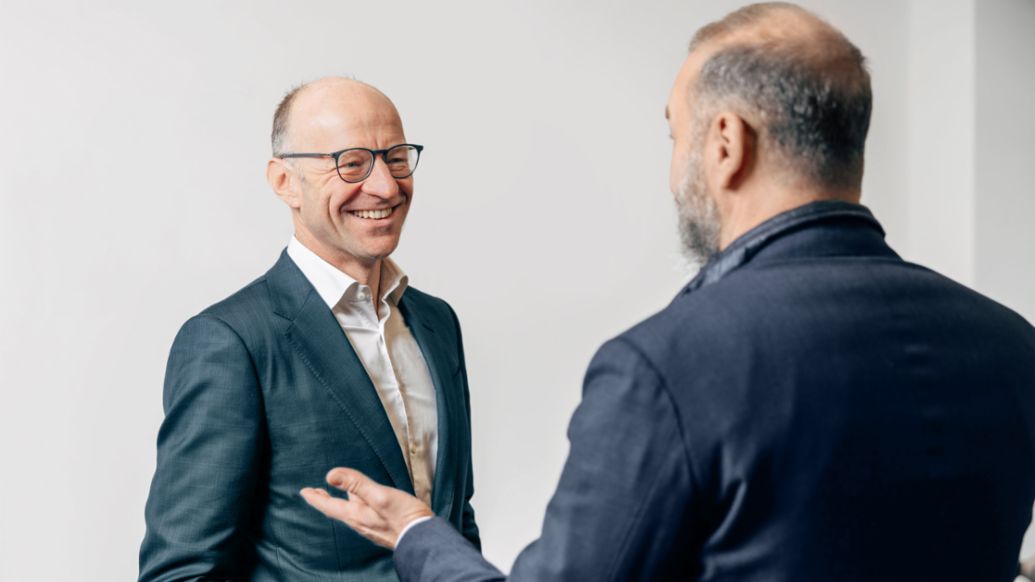
How do you get the employees on board for a journey of this type?
You have to keep telling everyone involved that the employees who are currently working on cars with combustion engines are the ones who are funding the transformation. That is an important, challenging, and essential job. And because we’re protecting all jobs until 2029, no one has to worry about their future.
Do you envy companies like Tesla or BYD, which are entering the new world of mobility from scratch and don’t have to transform themselves?
It’s true that the new competitors enjoy a certain opportunity by virtue of not having to restart anything. But on the other hand, they have to scale up from the beginning and build infrastructures for production, sales, aftersales, and financing, in order to become truly relevant. We make ten million cars a year. We have the business processes for ten million cars. We have the sales organization for ten million cars. What we have to transform, the new competitors first have to build up. They have to start up factories and develop processes for replacement parts, and it’s just as hard for them to get raw materials as it is for us. Both of these paths have their challenges. And if we are thorough in transforming ourselves, we’ll be in a very, very good position to keep pace with our competitors—or even exceed them.
What is your favorite thing to spend money on as CFO?
Future-oriented projects like ramping up our battery plants and increasing our software activities, and especially expanding our worldwide presence. Our planning up to 2026 calls for investing 159 billion euros, of which 56 percent will already be going into future-oriented fields. And you can be sure the ratio will shift even more toward the future in the years to come.
And what do you like spending money on as an individual?
The best thing is on gifts for family and friends—like recently at Christmas. It’s a real pleasure to give gifts.
Info
Text erstmalig erschienen im Porsche Consulting Magazin.
.jpg/jcr:content/Header%20221205_035_Porsche_Consulting_Dr_Arno_Antlitz_Max_Arens_16_9_breiter01%20(1).jpg)
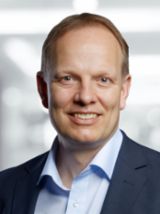
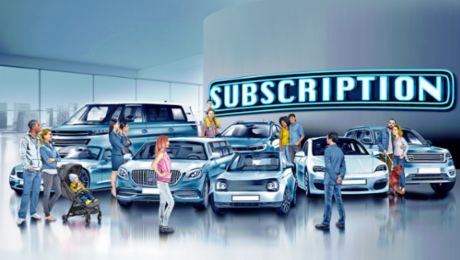
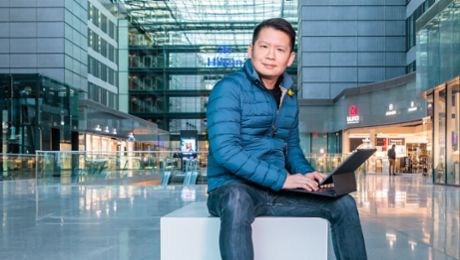
_Desktop_neu_dkl.jpg/jcr:content/1D3_6028%20(1)_Desktop_neu_dkl.jpg)
